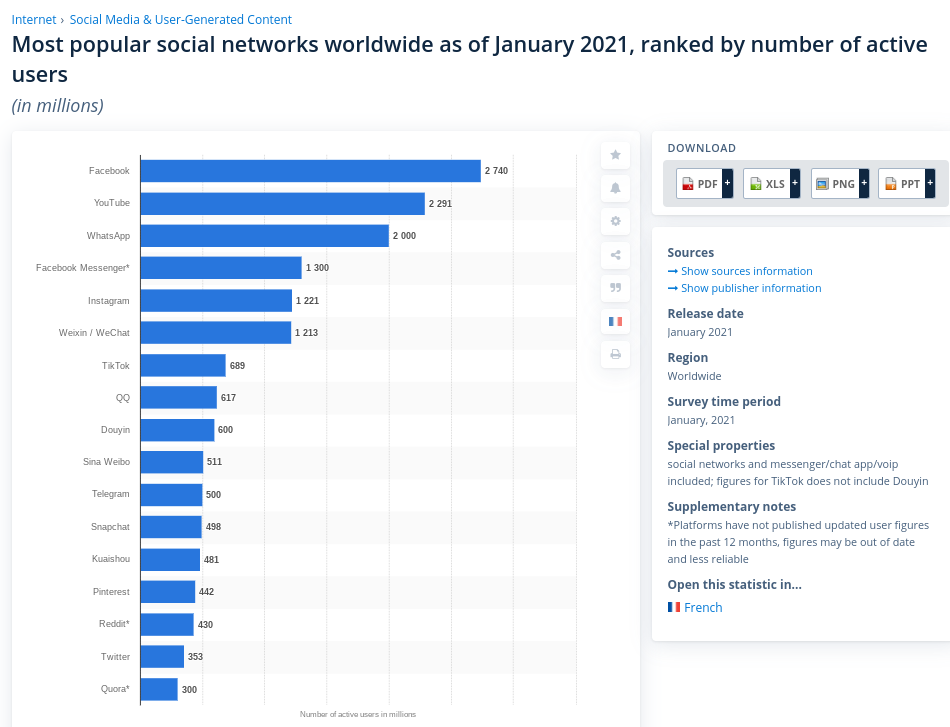[PLEASE NOTE: THE FIRST 30 SECONDS OF THE AUDIO ARE MESSED UP. PLEASE BEAR WITH ME AND IGNORE THAT, THE REST OF THE AUDIO IS FINE. I DON’T HAVE ACCESS TO AUDACITY TO FIX IT UP AS MY PC IS BROKEN RIGHT NOW.]
There was an outstanding Doonesbury cartoon from 1980 lampooning then-POTUS candidate Ted Kennedy for making high-flown statements with nothing actionable: the punch-line was, “A Verb, Senator, We Need a Verb!”.
I was struck by deja vu when PM Modi made a bold announcement on 7th June that the GoI was (re)assuming full control of vaccine procurement. I think Indians elected PM Modi to take decisive steps, but he has seemingly vacillated recently, so this was a welcome return to form.
The decision was also a reiteration of a sound business principle: size matters. Large customer orders always get better terms than smaller ones. It was evident all along that there was no way a motley crew of States would ever get the attention of pharma majors when there is a large supply shortfall.
It was apparent that the grandstanding opposition CMs were hoping to do the following:
Order the famous Pfizer vaccine at 10-20x the price of Covshield and Covaxin
Get supply commitments from Pfizer (and presumably commissions)
Then force the GoI through a public outcry to pay for the vaccine anyway
Obviously, that would have been a win-win for them. But this was doomed from the start, because Pfizer demands sovereign guarantees of indemnity. They asked Argentina to surrender its embassies and warships as guarantees of indemnity in case there were side effects/deaths and legal obligations. “Sub-national diplomacy” is all very well for Biden, but BigPharma is more hard nosed, and they know States have no assets they can seize, and so they will only deal with the GoI.
The opposition leaders are not really interested in vaccination, except as a stick to beat PM Modi with. Their support of the super-spreader ‘farmer’ agitation is clear proof of that. They flip-flopped, too. First, they wanted the GoI to allow States to procure vaccines. To their surprise, the GoI agreed. They were caught in a bind: and they had to backpedal furiously, because hardly any Big Pharma bothered to respond to their global tenders, except highly dubious Chinese vaccine makers.
So the PM has temporarily shut the politicians down, and they have been shown up. I am reminded of a poem by Oliver Goldsmith, “Elegy on the Death of a Mad Dog”, which says, among other things:
But soon a wonder came to light,
That shew'd the rogues they lied;
The man recover'd of the bite–
The dog it was that dy’d.
That, of course, is what politicians do: and we price it into our calculations about them. Not that they don’t need some discipline. It would be highly instructive to, say, Mamata Banerjee, who runs a medieval fiefdom, to charge her for culpability in the killings and ethnic cleansings of Hindus in West Bengal by illegal Bangladeshi aliens and/or her party cadres. So would it be to indict the Nehru dynasty scion on his dicey citizenship (British? Italian?) and other sins such as the National Herald kumbhakonam.
But there are, in my opinion, three other ‘institutions’ in India that are even more dastardly than politicians, and that need some decisive action.
Bureaucracy
First, babudom. I have lost count of the number of ‘open letters’ from retired babus with suggestions for the GoI about how to go about various things. Wonder of wonders, none of these things occurred to them when they were in power and could actually have done something useful. No, then they were too busy applying their lips to the ample mammaries of the welfare state and milking it for all it was worth.
IAS/IPS/IFS babus are excruciatingly sensitive to two things: their pension benefits and post-retirement sinecures. I remember a famous Nehruvian babu who joined an evangelical ‘aid’ group at 3x his salary, after going on leave and thus ensuring that his pension benefits would remain intact. It took a lot of shouting to force him to resign from the service and forgo his juicy pension/medical benefits.
There have been several other IAS/IPS officers in the limelight recently for all the wrong reasons: one barged into a Hindu wedding in Tripura (I think), slapped the priest, terrorized the attendees, ripped up the permit that allowed them to hold the ceremony at the muhurtam at midnight (as an exception to Wuhanvirus lockdown norms).
Another slapped a young man who was stopped on police while proceeding to buy medicines, and slammed his phone to the ground.
A third ordered a firing on a Hindu religious procession in Munger, and caused young Anurag Poddar to be shot in the head, and he died in his stricken mother’s arms.
So far as I can tell, none of these babus paid for their excesses with a dismissal from service, or even a suspension. They were merely transferred elsewhere. The ecosystem takes care of its own.
The latest example is a man who was Chief Secretary, West Bengal. There was gross insubordination on his part when he was 30 minutes late to a meeting with the PM, and then walked out early (the same antics as his Chief Minister). Upon being recalled to the center (after all, the IAS is a central service), he demurred. Shortly after, he retired, and was absorbed into the West Bengal government as a ‘senior advisor’.
There is a simple solution: on any transgression, suspend them without pay, and revoke the extremely generous pension and medical benefits pending a judicial inquiry into wrong-doing. Furthermore, make it a service rule that no retired babu can get a new post without its being advertised openly, and inviting qualified applicants, especially from the private sector.
If these steps are taken in the case of one, just one, high-handed bureaucrat, the whole lot of them (selected on the basis of a single mandarin exam, with the subjects being ludicrously out of touch with current realities) will think twice about lording it over the public.
After all, their job is administration: they should be selected on the basis of the IIM Common Admission Test or the GMAT and trained in the IIMs, and all the rigmarole of the fancy IAS Academy should be dispensed with. The days of generalist babus are over: industry increasingly requires domain knowledge and lateral entrants with short-term contracts.
The IPS needs specialized training in law and order; similarly the IFS needs training in diplomacy, trade and geopolitics. These can be add-ons to the basic IIM training.
Here’s an appalling example of how those with domain knowledge, not generalist mandarins, are the need of the day. This person is a retired Health Secretary, I am told:
Judiciary
It has been clear as day for some time that the Indian judiciary suffers from deep structural flaws. The most obvious issue is that it is extremely inefficient, and has allowed millions of cases to languish: the Supreme Court has a backlog of 68,000 cases; High Courts together have 58 lakh cases, and District Courts have 3.3 crore cases pending. This is appalling.
Judicial overreach is an endemic problem. Instead of fixing itself and ensuring that the unconscionable backlog is cleared in a time-bound manner, judges are encroaching on the territory of the Executive Branch by issuing peremptory orders on things they have no business in, no expertise in, and no value-added to offer in.
The solutions are also obvious:
1. Defining the focus of the Supreme Court to be strictly on Constitutional cases, and nothing but: no grandstanding on cricket or other high-visibility but trivial issues,
2. Ensuring that appointments to the high judiciary are vetted and approved by the Parliament and thus the elected will of the people, and also not left to an incestuous, unaccountable Collegium that specializes in nominating sons, nephews and other relatives,
3. Canceling the singularly outrageous device of the Public Interest Litigation (PIL), which has been used by well-heeled and motivated NGOs with foreign paymasters to bypass every check and balance and make a mockery of the process of escalation and appeal.
In a 2018 essay, https://swarajyamag.com/ideas/can-we-fix-the-deeply-troubled-judiciary I wrote at length about these issues, so I will not repeat myself.
However, there is something the government needs to do: impeach one, just one, of the most outrageous of the judges. I have a candidate in mind, but shall not name names, mindful of draconian contempt-of-court strictures.
The same issue with post-retirement sinecures and extravagant pension and other benefits comes up in the case of the judiciary as in that of bureaucrats. I had a great-uncle who was a State Chief Justice, and he had any number of tribunals and other jobs after he retired. I have a friend who was a Justice in a State, and post-retirement somebody is assigned to meet her at airports, carry her bags, and escort her to her flight!
Media
This is quite possibly the very worst and most corrupt institution in the country. It is thoroughly compromised and infiltrated by various vested interests, top to bottom. At one end, there is reason to believe that one of the richest and most visible editors in India was recruited by a New York Times correspondent as an ‘embedded asset’ more than thirty years ago. At the other end, the jibes about ‘2BHK’ journalists strike a chord, given their abject slavishness.
Indira Nehru Ghandy demonstrated that India’s journalists, when asked to bend, will grovel. Today, they can clearly be counted on to carry the agendas of any anti-India power: they are for sale.
This, of course, is par for the course for journalists everywhere. Some hallowed names in journalism, including science journals, especially British titles, have demonstrated that they are for sale to the highest bidder. Which for all practical purposes these days means they are ‘friends of Xinhua and Xi Jinping’, as the latter have splashed out on information warfare in a big way. Stories that reflect poorly on China tend to be swept under the carpet.
The Big Tech social media platforms give themselves airs these days for obvious reasons: they can defenestrate sitting presidents not only from their platforms, but from their seats of power, too. Sometimes there are unintended consequences, as in what happened in Nigeria: Twitter blocked the President, and Nigeria suspended Twitter indefinitely.
The ongoing saga of Twitter’s defiance of Indian law would be comical, if it weren’t such black humor. Twitter has thumbed its nose more than once at India: the first incident was when Jack Dorsey, its boss, showed up in India, got himself photographed with a bunch of women brandishing a slogan about “Brahmin Patriarchy”, and was photographed with the PM with body language screaming “arrogance!”.
Among many other transgressions, Twitter India in November 2020 deplatformed the scholarly @TrueIndology on flimsy or nonexistent grounds, essentially because they didn’t like him using well-reasoned and well-sourced information to trash leftist mythologies. I said in a podcast at the time that it was a watershed event, and that India should suspend Twitter forthwith. https://rajeevsrinivasan.substack.com/p/podcast-episode-9-trueindology-incident
Later, there was an incident in which Twitter showed Leh in China. Showing the borders of India incorrectly (especially out of malevolence) is a non-bailable offense, which attracts immediate arrest of the perpetrator, which in this case would be Twitter India’s honchos. That was strike two, enough to block Twitter’s IPs in India. I thought that by March 2021 India had enough reason to shut the platform down. https://rajeevsrinivasan.substack.com/p/episode-16-is-india-reining-in-bigtechsocialmedi
It’s comically appalling after all this history, and the fact that much bigger fish, such as Facebook, Youtube, etc. have acceded to Indian law, Twitter still goes around acting as though it were a sovereign government ‘negotiating’ with the Government of India on behalf of the “freedom of expression” of Indians. Nobody elected Twitter, did they? Such delusions of grandeur, such megalomania!
Why, PM Modi, is this relatively trivial application being given so much importance? Who’s afraid of Virginia Woolf? In reality, Twitter is -- get this -- the world’s No. 16 social media by number of users! It really is the chicken that should be killed to scare the monkeys such as Facebook, YouTube and Whatsapp, who are all watching with interest.
And exactly what will happen if Twitter is kicked out of India? I’m not sure what happened in Nigeria, but I suspect not much. Yes, Twitter is a convenient news feed for many of us, but its utility is limited, and other platforms can easily step into the breach, say India’s own Koo.
India simply cannot be held to ransom by an app. If India could kick out Tiktok (ironically Biden is revoking the ban on Tiktok by Trump), CamScanner and other Chinese apps, what is the hold that Twitter has over the country? Is it some fear that the New York Times and its Seventh Fleet will suddenly appear in the Bay of Bengal? Oh, wait, the NYT doesn’t have a fleet.
Just pull the plug on this whole sorry drama, Mr. Prime Minister. A verb, we need a verb from you: enough is enough. There is no reason to go around broadcasting that India is a Soft State.
2194 words, June 9th, 2021
















Share this post